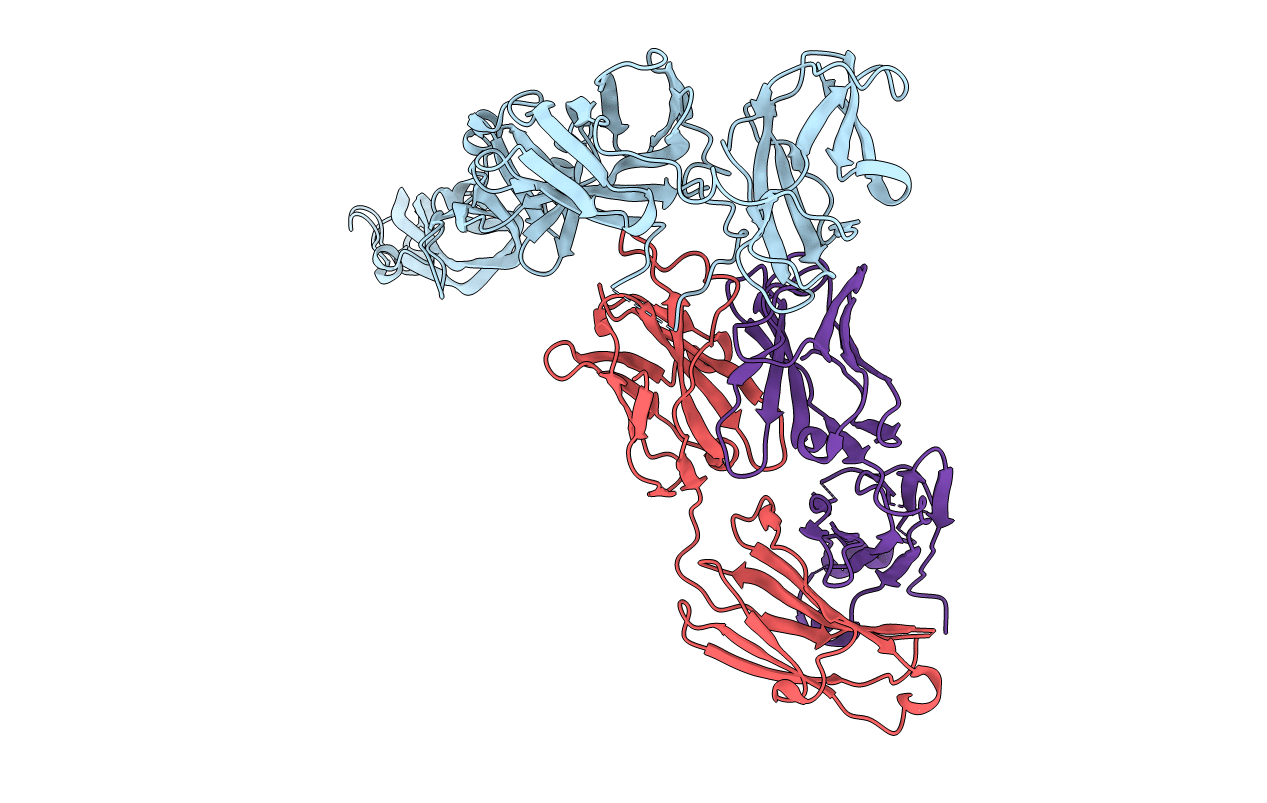
Deposition Date
2020-08-18
Release Date
2021-12-08
Last Version Date
2024-11-13
Entry Detail
PDB ID:
7A3U
Keywords:
Title:
Crystal structure of Zika virus envelope glycoprotein in complex with the divalent F(ab')2 fragment of the broadly neutralizing human antibody EDE1 C10
Biological Source:
Source Organism(s):
Zika virus (Taxon ID: 64320)
Homo sapiens (Taxon ID: 9606)
Homo sapiens (Taxon ID: 9606)
Expression System(s):
Method Details:
Experimental Method:
Resolution:
3.00 Å
R-Value Free:
0.27
R-Value Work:
0.22
R-Value Observed:
0.22
Space Group:
C 2 2 21


